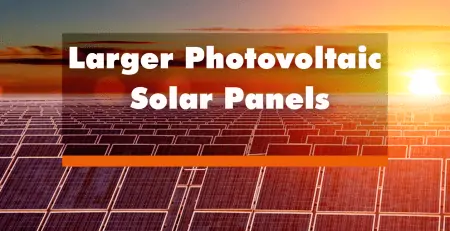Solar panel for home installation cost
Solar panels are a renewable energy source that converts sunlight into electricity. Installing solar panels for home use is becoming increasingly popular as a way to reduce energy costs and contribute to a cleaner environment. Understanding the cost of solar panel installation for homeowners is crucial as it helps them make informed decisions regarding the feasibility and financial benefits of installing solar panels for their homes.
Installing solar panels for homes has numerous benefits, including reducing electricity bills, increasing home value, and contributing to a more sustainable environment by reducing carbon emissions.
Factors that Affect the Cost of Solar Panel Installation
The size of the solar panel system needed for a home is a crucial factor in determining the cost of installation. Larger homes require more solar panels to meet their energy needs, which will increase the cost of installation.
The type and quality of solar panels used will also affect the cost of installation. High-quality solar panels that are more efficient and durable may cost more upfront, but they can provide better long-term benefits and savings.
The complexity of the installation process is another factor that can affect the cost of solar panel installation. Some homes may require more extensive electrical work or structural modifications to accommodate the solar panels, which can increase the installation cost.
The cost of labor and permits is another significant factor in the overall cost of solar panel installation. Skilled professionals are needed to install solar panels properly, and permits may be required by local authorities, which can add to the cost.
Incentives and tax credits available can help offset the cost of solar panel installation. For example, federal and state tax credits can significantly reduce the overall cost, and some utility companies offer rebates or other incentives for installing solar panels.
Average Cost of Solar Panel Installation for Homes
The national average cost of solar panel installation for homes in the United States is around
$2.81 per watt, or approximately $14,050 for a 5-kilowatt system. However, this cost can vary widely depending on the factors mentioned above.
The cost breakdown of solar panel installation includes the cost of solar panels, mounting equipment, inverter, wiring, and labor.
Regional variations in cost can also affect the overall cost of solar panel installation. For example, areas with higher labor costs or permitting fees may have a higher installation cost than areas with lower costs.
Financing Options for Solar Panel Installation
A cash purchase is the simplest and most straightforward way to finance solar panel installation. Homeowners can pay for the system upfront and benefit from long-term savings on their electricity bills.
Solar loans are another financing option that allows homeowners to finance the cost of solar panel installation over time. These loans typically have lower interest rates and longer terms than traditional personal loans.
Solar leases allow homeowners to lease the solar panel system from a third-party provider. The provider owns the system and is responsible for maintenance and repairs. Homeowners pay a monthly fee for the use of the system, which can be less than their current electricity bill.
Power purchase agreements (PPAs) are similar to solar leases, but homeowners pay for the electricity generated by the system rather than the use of the system itself. The third-party provider owns and maintains the system and sells the electricity back to the homeowner at a fixed rate.
Government incentives and tax credits can significantly reduce the overall cost of solar panel installation. Federal and state tax credits are available, as well as rebates and other incentives from some utility companies.
Potential Savings from Solar Panel Installation
One of the primary benefits of installing solar panels for homes is the reduction in energy bills. Solar panels generate electricity that can offset or eliminate the need to purchase electricity from a utility company, resulting in significant savings on energy bills.
Installing solar panels can also increase the value of a home. Homebuyers are often willing to pay more for a home with a solar panel system, especially if it has already been paid off, as it represents a long-term investment in lower energy costs.
The return on investment (ROI) for solar panel installation can be substantial. While the upfront cost may be high, the long-term savings on energy bills can result in significant financial benefits over time.
Installing solar panels also has environmental benefits. Solar energy is a renewable and clean energy source, meaning that it does not produce harmful greenhouse gas emissions that contribute to climate change.
Tips for Reducing Solar Panel Installation Cost
Research and compare solar panel installers to find the best price and quality for the system.
Consider smaller or simpler solar panel systems that are tailored to your energy needs.
Choose lower-cost solar panels that meet your energy needs. While higher-end panels may have a longer lifespan or higher efficiency, lower-cost panels can still provide significant energy savings at a more affordable price.
Take advantage of government incentives and tax credits to reduce the overall cost of installation.
Explore financing options, such as solar loans or leases, to help spread out the cost of installation over time.
Conclusion
Understanding the cost of solar panel installation for homeowners is essential to make an informed decision about whether to invest in solar energy. Encouragement to consider the benefits and potential savings of installing solar panels for homes. With the availability of financing options and government incentives, installing solar panels can be an affordable and beneficial investment in the long term. Final thoughts on the future of residential solar energy and its potential to transform the way we power our homes. As technology continues to improve and costs continue to decline, solar energy is becoming an increasingly attractive option for homeowners.


